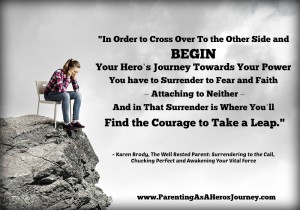“Having The Guts” To Harden Parents’ Hearts
“Do you have the guts? You’re chicken if you don’t!” Remember such taunts to do stupid things in childhood? Apparently they are common in adulthood too.Taunting has not gone away. Some doctors reportedly are taunting their patients.
The developmental psychology evidence is clear:
The MOST important parent behavior linked to virtually all good outcomes for children is being warm and responsive to a child’s needs, especially in the early years.
Pediatricians who tell parents to ignore their baby’s cries at night are encouraging nonresponsiveness, a poison that can infect the relationship.

Why are pediatricians encouraging parents to harden their hearts against their children?
- Pediatricians who recommend such baby neglect seem to be unaware that babies are born 9-18 months early compared to other animals and should be having an “external womb” experience in early life as their brains develop rapidly during that time. Babies evolved to need to be kept on or near the caregiver‘s body to keep growing well.
- Pediatricians are not well-versed in the effects of leaving a social mammal, especially a very immature human, in isolation and extensive distress (see Dangers of Crying it Out). A child facing the kind of toxic stress described will likely havehealth problems, not ever feeling safe or “right,” undermining sociality and learning–the types of problems increasing across the country. The child’s body remembers.
- Instead medical personnel are exposed to lousy research about sleep training (seehere, here and here).
Doctors who advocate neglecting baby needs (e.g., to be with caregivers) might reexamine their ethics. They seem to have forgotten the “do no harm” principle. But because the baby cannot speak up for herself, it’s easy to minimize effects on her welfare instead of affirming her rights.
Doctors bully parents and parents pass the bullying onto their babies. Being a bully does not take guts.
Doctors who mess with parental instincts also seem to have forgotten that a profession serves, not commands. Facing the mysteries of life and child development requires humility, not grandiosity. It takes guts to be humble and surrender to the primal needs of a baby.
But it’s not just pediatricians that encourage hardening hearts against children. It is widespread. The governing cultures of science, medicine and business are flowing against kindness, compassion (although there are moves in the other direction). It’s rationalized as “being objective.” It emerges from the mythological views of world-as-mechanism, baby as conditionable machine–behavioristic psychology in medical disguise.
 That is not all. By putting most of its citizens under excessive stress, adults in the USA are prone to think and act from a survival mindset. When the stress response kicks in, compassion and good thinking are less available as you are just trying to get back to feeling safe again through aggression or withdrawal.
That is not all. By putting most of its citizens under excessive stress, adults in the USA are prone to think and act from a survival mindset. When the stress response kicks in, compassion and good thinking are less available as you are just trying to get back to feeling safe again through aggression or withdrawal.
In this self-protectionist mindset, everything is viewed as adversarial: be tough, unyielding, not a sissy! Zero tolerance. You are either in control or controlled by others. One up or one down. When applied to parenting, it’s about who is “in charge” –you or the child? Parenting is set up as a power struggle. The focus is on winning. “Don’t let the baby control you!” You are a lousy parent if “you lose.”
If we succumb to taunting, what do we get? Survivalist behavior. It is usually about not following your heart or your head but your ego—‘I’m not chicken. See how strong I am’.
When parents shift into power playing, both parents and baby lose. Both learn to distrust their instincts, their feelings, infecting the relationship with distrust. They give their power to the “experts” who tell them that the experts know better than the instincts. Not true. The instincts have been honed over tens of millions of years into what works for the baby’s survival and thriving.
“Playing chicken” with babies can undermine the child for a lifetime and certainly sets back any trust that had been developing between baby and parent. We and others find that the responsive relationship settles in the first 4 months or so of the child’s life. Just think, adult advisers who undermine responsiveness are setting a different trajectory for the relationship and for the child.
Parents should think twice about doctor advice that goes against their instincts. The child’s body will remember what happened even if their conscious mind does not. Parents should ask themselves: What do I want my child’s body to remember–affection and love, or tortured loneliness and fear? Parents who “surrender” to their instincts to protect, guard and be with the baby– meeting the baby’s basic needs for their presence and affection– will not regret it. Let’s support the parents who have these guts.
*Note: Michel Cohen, M.D. is quoted in the article cited. He advocates total extinction (full cry it out) sleep training at 8 weeks old. Be forewarned if you come across his parenting book.
Photo Shutterstock/Chameleon’sEye


